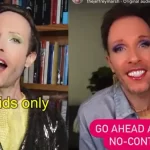
I get this question A LOT! As a hacker, one might assume that I would naturally be inclined to use my skills to track down child predators or child pornographers—individuals who commit some of the most heinous crimes imaginable. But there are significant reasons why I choose to refrain from engaging in such activities. While it may seem counterintuitive to some, there are multiple complex and practical considerations that inform my decision.
The Psychological Toll
First and foremost, I recognize the inherent evil in the acts committed by child predators and pornographers. These are individuals who exploit the innocent, causing unimaginable harm. However, as much as I despise their actions, I choose not to dive into this world for a deeply personal reason: I don’t want to expose myself to such evil and risk the psychological toll that comes with it.
Working to track down or investigate such individuals would mean immersing myself in an environment filled with unspeakable content. Even the thought of confronting that kind of darkness, day in and day out, is enough to make me pause. Exposure to child pornography or evidence of child abuse could easily lead to post-traumatic stress disorder (PTSD). Constantly seeing these kinds of materials can warp your perspective, disturb your peace of mind, and inflict psychological damage. It’s a dirty business, and the emotional and mental strain of being regularly exposed to such vile content can leave lasting scars. I choose to protect myself from this trauma, maintaining a healthy boundary between my work as a hacker and the darker corners of the internet.
The Risk of Criminal Liability
Another key reason I avoid this area is the very real risk of criminal liability. In many jurisdictions, simply having child pornography on your computer is a crime, regardless of how it got there. As a hacker, if I happen to stumble upon illegal content while attempting to expose these individuals, there’s a possibility that such material could inadvertently be downloaded or stored on my computer. Even if it’s purely accidental or momentary, the legal system may not differentiate between a well-intentioned hacker and someone engaging in criminal activities. The potential for misunderstanding is simply too great, and the consequences too severe.
Engaging in this type of hacking could make me vulnerable to being accused of the very crime I sought to stop. There’s no guarantee that law enforcement or the justice system would view my actions in a positive light, and the risk of getting entangled in a criminal investigation or facing charges myself is a burden I am unwilling to bear.
Reporting, But Not Engaging
This is not to say that I turn a blind eye to the problem. If I do come across any form of child endangerment or illegal activity related to child exploitation, I always report it. Reporting such content to the appropriate authorities, whether through law enforcement tip lines or designated reporting websites, is a crucial step in combating these crimes without involving myself directly. I recognize the importance of being vigilant and responsible as an internet user and hacker, but there is a distinct line between reporting suspicious activity and actively hunting down these predators.
Involvement Only When Legally Directed
I will not get involved in tracking or shutting down anyone unless there is a direct request from law enforcement. Hacking without proper legal oversight can quickly become vigilantism, which, no matter how well-intentioned, is still illegal. Law enforcement agencies have the legal authority and the resources to pursue these criminals in a way that minimizes risks and ensures justice is served in a lawful manner. Acting without the authority or backing of the law is not only illegal but also risks compromising ongoing investigations.
By allowing law enforcement to take the lead, I ensure that my actions align with the legal process and avoid potential missteps that could impede their efforts. Moreover, law enforcement professionals are trained to handle these situations and to protect themselves from the psychological and legal ramifications that would otherwise be overwhelming for an individual hacker.
While the fight against child predators and pornographers is an essential and noble cause, it is one I choose not to participate in as a hacker. The psychological toll of exposure to such evil, the potential for criminal liability, and the risks of acting outside the legal framework are all compelling reasons to leave this work to trained professionals. Instead, I remain vigilant in reporting anything suspicious that I come across, ensuring that the appropriate authorities can handle these cases within the bounds of the law. I refuse to expose myself to the potential trauma or legal consequences that come with hacking in this realm, but I remain committed to doing what I can responsibly.







